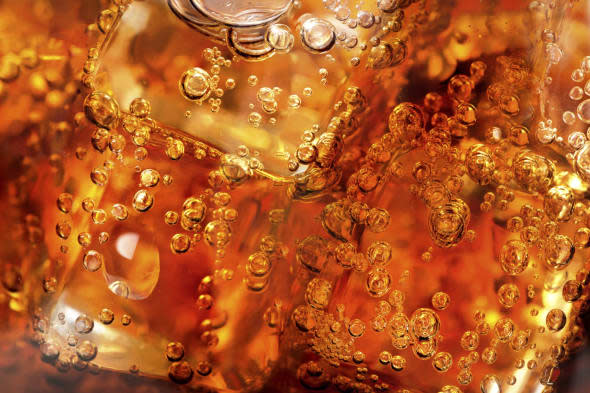Why Brits are falling out of love with cola

Researchers have discovered that Brits are turning their back on cola in its various guises. Instead of grabbing a coke, people are increasingly likely to turn to energy drinks, water and smoothies.
Fizzy drink sales in general have been dropping around the word. In America, for example, consumption peaked in 1998, when the average American drank 54 gallons. By 2013 consumption was down to 38.6 gallons. Meanwhile, in Western Europe, consumption of Coca-Cola was down 3% last year alone.
Fizzy drinks have developed something of an image problem - particularly when it comes to health issues. First it was the full sugar versions that suffered, as people started to reduce their intake because of concerns about how much weight it was causing them to gain. Then diet versions started to suffer, as people became worried about the health risks of consuming drinks made with artificial sweeteners.
Meanwhile, Olly Wehring, editor of Just Drinks, told the Mirror, that cola is also suffering from an 'old fashioned' image. Young people associate it with their parents - so they want to opt for something new.
%VIRTUAL-ArticleSidebar-shopping-guide%
What are we buying?
The falls in cola consumption have not been replicated in other soft drinks. Figures from Britvic show that last year the UK soft drinks market was worth £10.3 billion - up 2% in a year - so rather than turning to tap water, people have been looking for alternatives.
One major trend is the growth of energy drinks. The Mirror reported that sales of energy drinks have doubled in the past ten years. In particular, the Britvic study showed that energy drinks dominated sales at convenience stores - where young people are more likely to stock up. Here the energy segment outsold cola for the second year - with sales dominated by Lucozade.
The fact that Coca-Cola bought the third biggest player in the market last year - Monster - is a strong indication that it also expects energy drinks to be a major source of growth in the future.
However, the Britvic study revealed another star of the soft drinks market: 'cold hot drinks', as iced tea and the Starbuck's range of coffees helped the segment grow 43% in a year.
Meanwhile, sales of plain bottled water had risen 13% in a year, and waters with something added (like vitamin water) were up 8%.
Is this the end of cola?
Cola manufacturers shouldn't panic just yet. According to Euromonitor, we still drink almost 2.5 billion litres of cola drinks every year - compared to 0.5 billion litres of energy drinks - so it's hardy in terminal decline. The Nielsen ScanTrack research, meanwhile, still listed the Coca-Cola family of brands as the best selling soft drink in the UK, followed by the Pepsi family.
The company is also working overtime to improve its image with young people, with the launch of names on bottles, and plans for smaller cans in a variety of colours for this summer. It remains to be seen whether it can reverse its decline among young people, but in the interim it seems there are plenty of older people who are happy to keep consuming it - so it has a long way to go before it stops being the nation's favourite fizzy drink.
Food and drink on AOL Money
This chocolate bar costs £170
Porridge sales double since 2008
There's a rat's head in my frozen spinach




